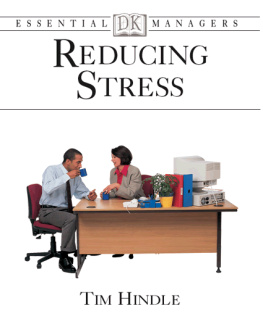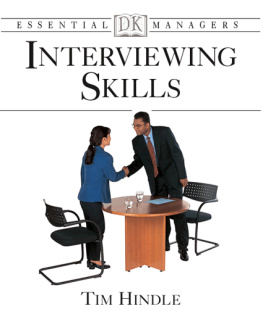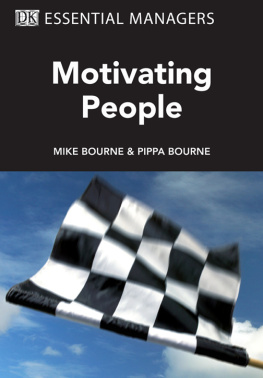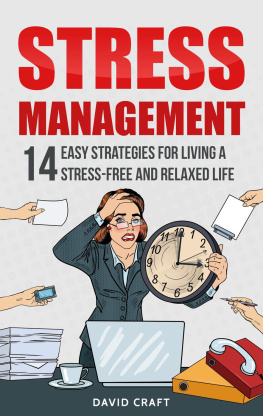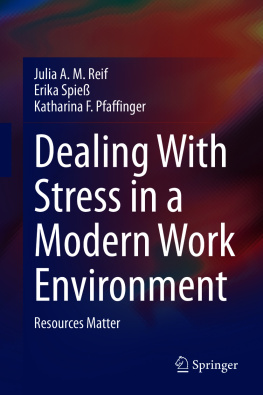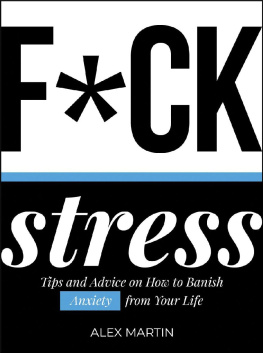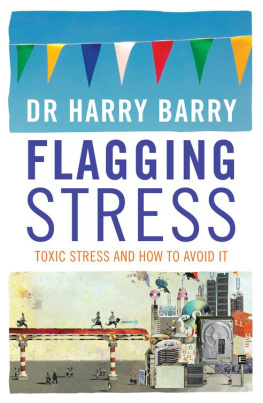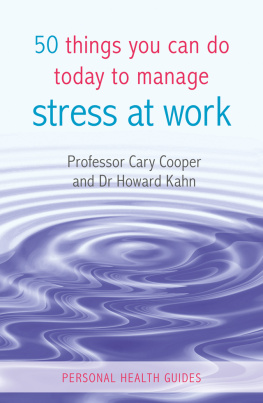Dorling Kindersley Limited
The Penguin Group
2 4 6 8 10 9 7 5 3 1
Published by the Dorling Kindersley Limited,
80 Strand, London WC2R 0RL
LONDON, NEW YORK,
MUNICH, MELBOURNE, DELHI
Dorling Kindersley Limited, Registered Offices: 80 Strand,
London WC2R 0RL, England
www.dk.com
First published in 1998 by Dorling Kindersley Limited. ISBN: 9780751305289
Copyright 1998 Dorling Kindersley
Text Copyright 1998 Tim Hindle
This Digital Edition published 2009. ISBN: 9781405352093
E-Pub version prepared by DK Digital Content Services, London and DK Digital Media, Delhi.
No part of this publication may be reproduced, stored in a retrieval system, or transmitted in any form or by any means, electronic, mechanical, photocopying, recording, or otherwise, without the prior written permission of the copyright owner.
Introduction
Stress will probably affect all of us at some time in our lives. Reducing Stress will help you to manage the stress in your life so that it continues to stretch you towards your personal goals without damaging your health. The content concentrates on minimizing the stress factor in your workplace, with 101 concise tips scattered through the content to give further vital information. Beginning with an analysis of the causes of stress, the content deals with reducing stress in your own life, and ends by showing you how to use your new-found knowledge to help others deal with their stress. A self-assessment exercise allows you to plot your stress levels. The content provides invaluable information that you will be able to utilize over and over again as you learn to minimize stress.
Understanding Stress
Stress has been called the invisible disease. It is a disease that may affect you, your organization, and any of the people in it, so you cannot afford to ignore it.
What is Stress?
On occasions, all of us experience stress. Beneficial stress can help drive a few of us to become Olympic champions, but harmful stress can drive others to despair. A force as powerful as that should always be handled with respect.
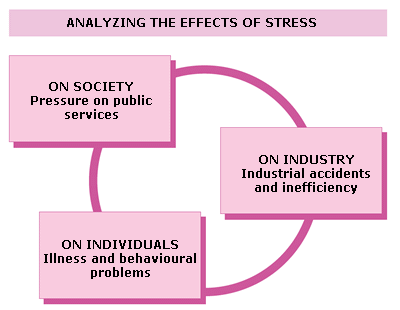
The definition of stress
Stress in individuals is defined as any interference that disturbs a persons healthy mental and physical wellbeing. It occurs when the body is required to perform beyond its normal range of capabilities. The results of stress are harmful to individuals, families, society, and organizations, which can suffer from organizational stress.
Its effect on society
The societal costs of stress are already high and are increasing steadily. Society bears the cost of public services such as healthcare for those made ill by stress, pensions for early retirement brought on by stress, and disability benefits for accidents occurring because of stress. In addition to this, stress often makes people irritable, and this affects the overall quality of everyones lives.
Its effect on companies
Stress costs industry over $150 billion a year in the US alone through absenteeism and reduced levels of performance by those who are physically present but mentally absent. In the UK, as much as 60 per cent of all absenteeism is believed to be caused by stress-related disorders. Anything that can reduce the damaging effects of stress makes workers happier and companies richer.
Its effect on the body
When the human body is placed under physical or psychological stress, it increases the production of certain hormones, such as adrenaline and cortisol. These hormones produce marked changes in heart rate, blood pressure levels, metabolism, and physical activity. Although this physical reaction will help you to function more effectively when you are under pressure for short periods of time, it can be extremely damaging to the body in the long-term.
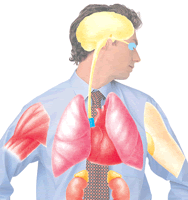
Symptoms of stressThe physical symptoms of stress can affect the whole body, particularly the cardiac and respiratory systems.
Its effect on physical health and wellbeing
Long-term stress has been identified as one of the most prevalent causes of numerous common conditions, including high blood pressure and heart disease. It is now commonly thought that prolonged stress can also increase the risk of psychological or psychiatric ailments. Behavioural changes caused by stress, such as the increased and excessive use of alcohol or drugs, are also linked to a marked decline in physical health.
When under an abnormal amount of stress, the risk of dependency on alcohol is very high. Apart from major physical health problems caused by excessive drinking, over-consumption of alcohol can also result in highly strained and therefore stressful personal relationships, both in the home and at work. Alcohol abuse, resulting in worker absenteeism, is reckoned to cost the US economy more than $100 billion annually.
Prescribed drugs such as tranquillizers, while sometimes useful in the short term to tackle the symptoms of anxiety, can be addictive and have side effects such as loss of concentration, poor co-ordination, and dizziness. Tranquillizers, by their very nature, are not a cure for stress since they do not deal with its fundamental causes.
Its effect on emotions
Those who suffer from stress are far more likely to indulge in destructive behaviour, which can have a high cost to themselves, to employers, and to society. Typical symptoms such as mood swings and erratic behaviour may alienate colleagues as well as friends and family. In some cases, this can start a vicious circle of decreasing confidence, leading to more serious emotional problems, such as depression.
Stress and mental health
The incidence of psychological disorders, such as panic attacks and obsessive behaviour, increases with the build-up of long-term stress. Worries can reach such a level that they surface as a frightening, painful physical sensation, which can be mistaken for a heart attack. People under prolonged stress are more prone to irrational fears, mood swings, and phobias, and may experience fits of depression, anger, and irritability.
Its effect on decisions
Suffering from any level of stress can rapidly cause individuals to lose their ability to make sound decisions, especially if their self-confidence fails. This affects health, family, and career alike, since stress in one area of life inevitably affects others. Someone suffering from stress may not heed physical signs of illness, attributing them to the side-effects of stress. Faulty decisions made in the workplace and at home may lead to accidents or arguments, financial loss, or even the loss of a job.
Its effect on families
Stress can break up homes and families. The high divorce rates in the West are due partly to the rapid increase in stress in the workplace, especially where both partners are working full time. It is difficult to be find the energy to be supportive to family and friends if work is very difficult or you are afraid that you may lose your job.

